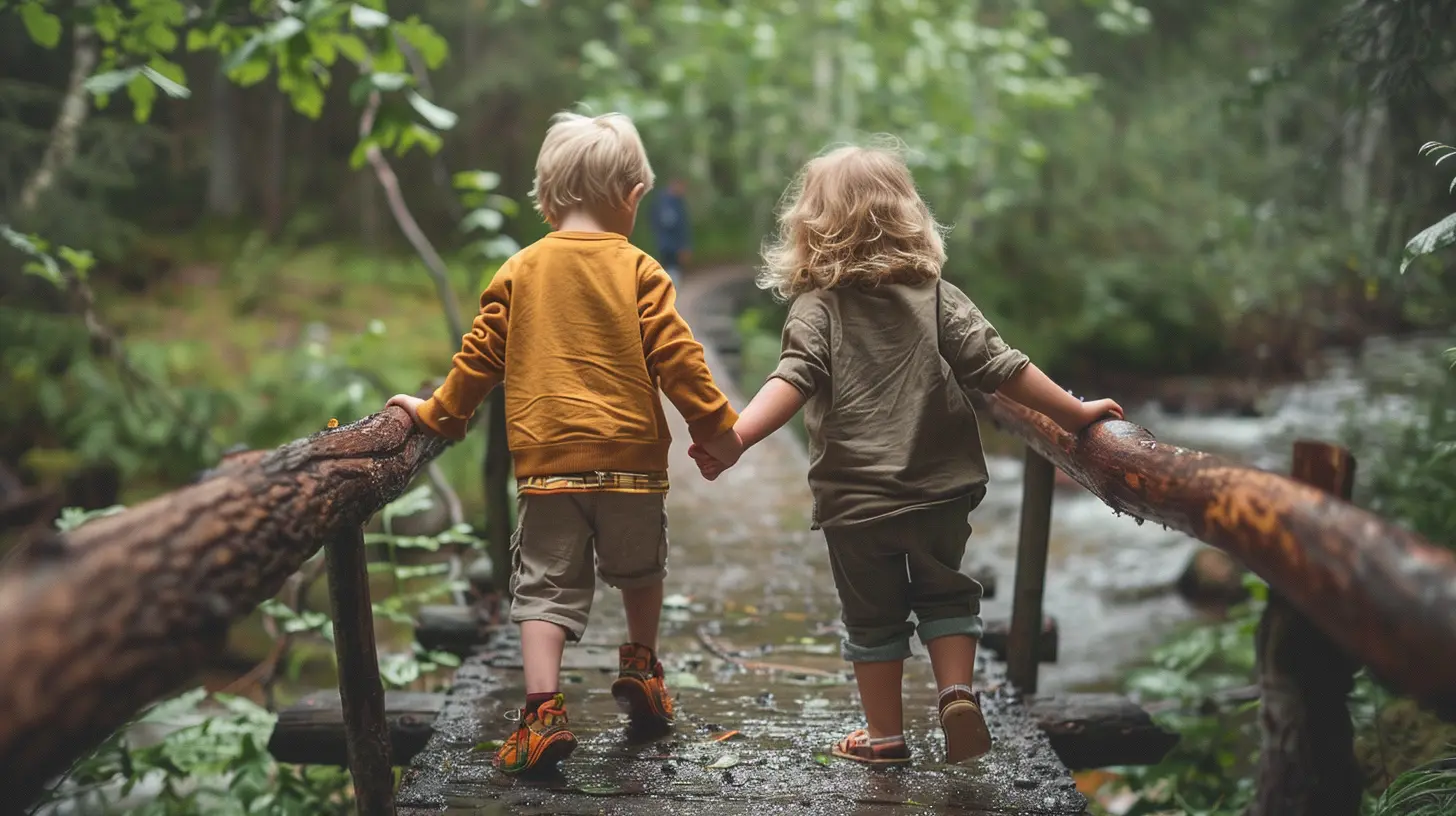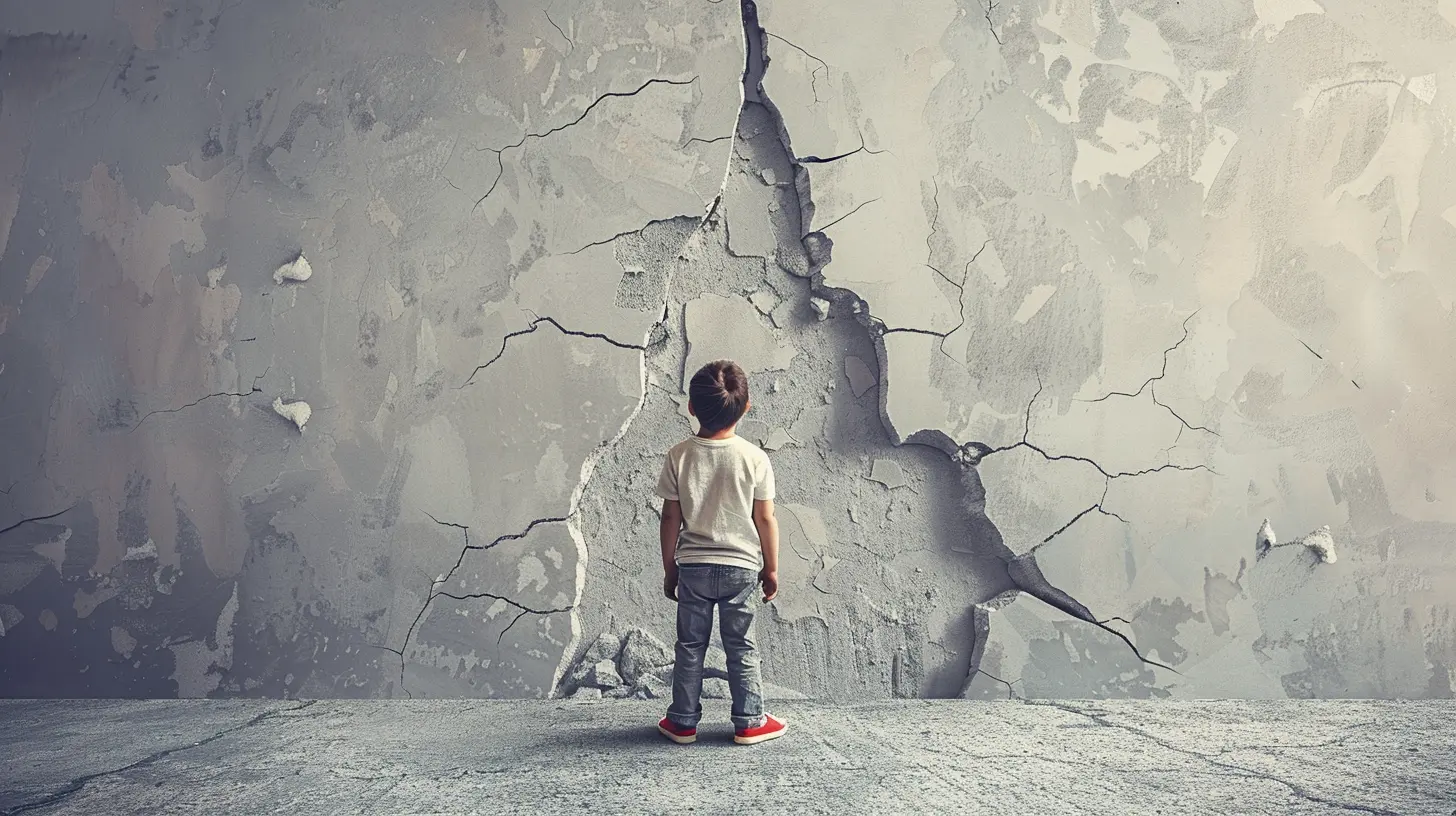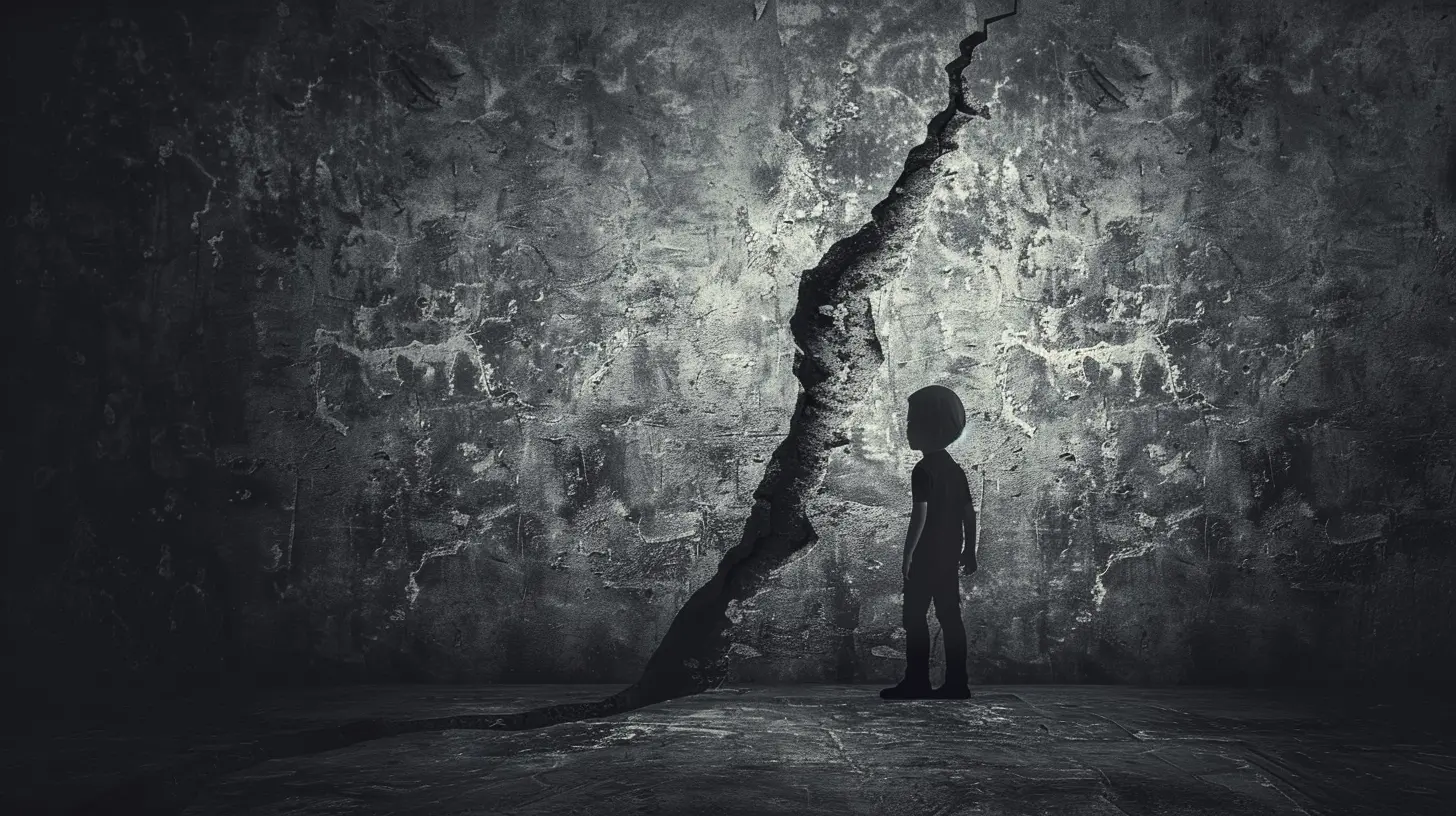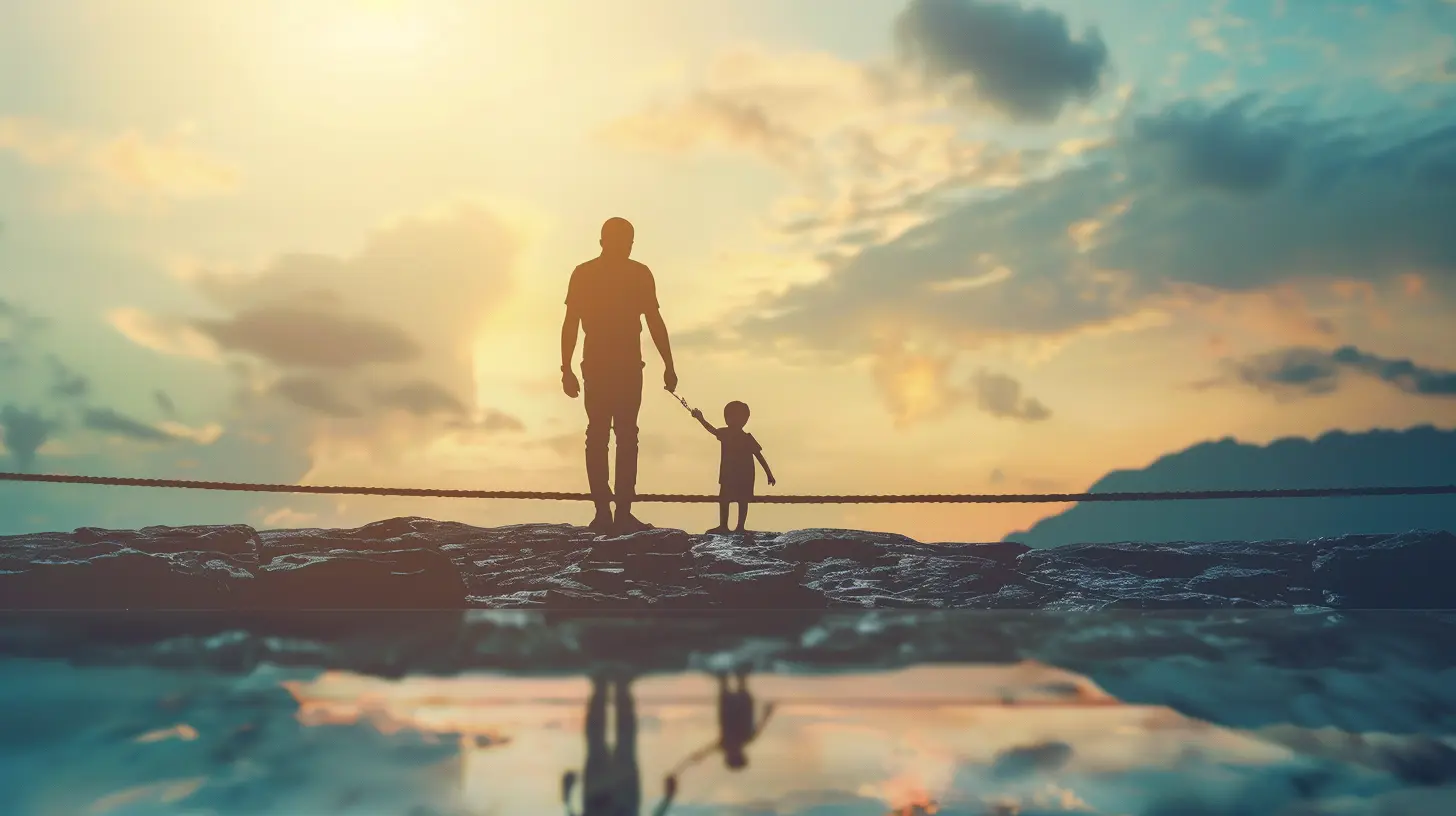Helping Your Child Develop a Healthy Relationship with Failure
11 July 2025
Failure. Just the word can stir up some pretty heavy emotions, right? It's that pit-of-the-stomach churn we feel when something doesn't go as planned, the shame that creeps in when we fall short. But here's the twist — failure isn't the villain we've made it out to be.
In fact, when it comes to helping your child grow into a confident, resilient human being, failure is one of the most underappreciated heroes in their story.
Let’s dive in and unpack how you, as a parent or caregiver, can guide your child in forming a healthy, even empowering, relationship with failure — without the drama, without the shame, and definitely without the fear.
Why We’re So Afraid to Fail
First, let’s talk about where this fear comes from.We live in a performance-driven world. Grades, trophies, social media likes — everything seems to scream, “Be the best or go home.” And when we, as adults, carry our own fears of failure, it’s super easy to pass those anxieties onto our kids.
The truth? We’ve all internalized the myth that success means getting it right the first time. But that’s not life. Life is messy, full of stumbles, and it often takes several falls before we hit our stride.
So, how do we help our kids reframe failure? It starts with us.
The Power of Failing Forward
Have you ever watched a baby learn to walk? They fall a hundred times before they ever take that first step. But do they give up? Nope. They keep at it, giggling and wobbling, because failure isn’t shameful — it’s part of the process.Somewhere along the way, we stop seeing failure as a step forward and instead see it as a dead-end.
Let’s change that narrative.
To help your child develop a healthy relationship with failure, we’ve got to teach them how to fail forward — how to see their mistakes as stepping stones rather than stumbling blocks.
Start with Your Own Beliefs
Here’s the hard truth: if you see failure as a weakness, your child probably will too.Kids are like emotional sponges. If you beat yourself up over every misstep, they’ll pick up on that. So, before trying to “fix” how your child sees failure, ask yourself: how do I handle my own?
Do you give up easily? Do you hide your mistakes? Or do you own them, learn from them, and keep going?
Model the behavior you want them to adopt. Show them what it looks like to stumble and get back up. Talk openly about your own failures — not as horror stories, but as turning points.
“Remember when I burned the lasagna? Yep, we ended up ordering pizza, but now I double-check the oven temperature every single time. Live and learn, right?”
Praise the Process, Not Just the Outcome
This one's a game-changer.Instead of saying, “Wow, you got an A! You’re so smart!” try, “You really studied hard for this — your effort really paid off!”
Why does this matter?
Because when we praise outcomes, we teach kids to tie their worth to results. And when those results don’t go their way... well, it hits harder.
But when we celebrate the process — the grit, the resilience, the problem-solving — we’re building something way deeper: a growth mindset.
Kids with a growth mindset understand that abilities can be developed through hard work and perseverance. They're not afraid to fail, because they see it as part of learning.
Let Them Struggle (It’s Not Cruel, It’s Crucial)
Here’s a truth most parents never want to admit — sometimes, the best thing we can do is step back and let our kids fail.It hurts, doesn’t it? Watching your child try and not quite make it? But here's the secret: failure in a safe, loving environment is one of the best teachers they'll ever have.
Let them mess up the science project. Let them get a D on a test they didn’t study for. Let them lose the soccer game because they weren’t paying attention.
Then, be there. Not to rescue them, but to reflect with them.
Ask:
- “What do you think happened?”
- “What could you try differently next time?”
- “How are you feeling about it?”
These conversations build emotional intelligence, self-awareness, and coping skills — all essential for a well-rounded, resilient human.
Teach Emotional Regulation
Let’s be real. Failure can bring up some big feelings — frustration, embarrassment, even devastation. And kids don’t always have the tools to manage those emotions.That’s where you come in.
Help them name their feelings. Say things like, “Sounds like you’re really bummed,” or “It makes sense that you’re feeling disappointed.”
Normalize those feelings. Let them know that it’s okay to cry or be upset — that doesn’t mean they’re weak, it means they’re human.
Then, teach them how to move through those feelings. Deep breaths. Going for a walk. Journaling. Drawing. Whatever works for them.
The goal is to teach them that failure doesn’t have to lead to meltdown — it can be a chance to pause, feel, and grow.
Share Stories of Famous Failures
Everyone loves a good comeback story, especially kids.Did you know Einstein didn’t speak until he was four? Or that J.K. Rowling got rejected by 12 publishers before Harry Potter made it to print?
These stories are powerful. They show your child that failure isn’t a sign to give up — it’s sometimes the very thing that shapes greatness.
Make it a habit to talk about these stories at dinner. Watch inspiring documentaries. Show them that behind every success is a trail of beautiful, messy, imperfect attempts.
Encourage Curiosity, Not Perfection
One of the best ways to inoculate your child against the fear of failure is to encourage curiosity. Make your home a safe space for wondering, experimenting, and messing up.Let them try things just for the joy of it — not for grades, not for glory, just to see what happens.
- Want to mix vinegar and baking soda? Go for it.
- Interested in building a birdhouse? Here's some wood and glue.
- Thinking of writing a comic strip? I'll grab the markers.
When kids feel free to explore without the pressure of getting it “right,” they learn that failure is just feedback — not a final verdict.
Rewrite the Language Around Failure
Language matters. A lot.Think about it — when your child says, “I can’t do this,” what if you added one small word?
“Yet.”
“I can’t do this... yet.”
That tiny word shifts everything.
Start using phrases like:
- “Mistakes help us grow.”
- “Every ‘no’ brings you closer to a ‘yes’.”
- “Failure isn’t falling down, it’s staying down.”
Speak life into failure. Speak learning, resilience, audacity, progress.
Turn Failure Into a Family Value
What if your whole family embraced failure as a badge of honor?Try having a “Failure of the Week” dinner where everyone shares something that didn’t go as planned — and what they learned from it.
Celebrate the effort. Laugh at the chaos. Normalize the stumbles.
Your child will start seeing failure not as something to fear or hide, but as something that binds your family together in growth and courage.
When to Step In (And When Not To)
Now, this doesn’t mean you let your child fail all the way into danger or despair. There’s a difference between productive failure and harmful failure.Step in when:
- Their self-esteem is spiraling.
- They’re showing signs of anxiety or depression.
- The stakes are too high to let them learn naturally (like safety risks).
But stay back when:
- They’re facing a natural consequence of their actions.
- They’re capable of solving the problem with support.
- Your intervention would rob them of a valuable lesson.
Balance is key.
Final Thoughts: The Gift of Failure
Here’s the magical truth no one tells you: helping your child develop a healthy relationship with failure is one of the greatest gifts you can give them.You’re not just teaching them how to deal with losing a game or flunking a quiz. You’re teaching them how to show up in life — brave, curious, and unafraid to fall.
So, the next time your child stumbles, take a deep breath. Let your love be louder than the shame. Let your support be stronger than their fear.
And remind them — falling is just proof they’re trying.
TL;DR — Quick Tips for Raising Failure-Friendly Kids
- Model resilience by handling your own failures with grace.- Praise effort, not just results.
- Let them struggle (safely) and reflect with them afterward.
- Help them name and cope with big feelings.
- Share real-life stories of failure and triumph.
- Encourage curiosity over perfection.
- Use empowering language around mistakes.
- Make failure a positive part of your family culture.
all images in this post were generated using AI tools
Category:
ParentingAuthor:

Jenna Richardson
Discussion
rate this article
2 comments
Zinn McGee
This article offers valuable insights on fostering resilience in children by normalizing failure. Encouraging a growth mindset and open communication equips them to learn from setbacks, promoting emotional well-being and confidence.
December 13, 2025 at 4:54 AM

Jenna Richardson
Thank you for your thoughtful comment! I'm glad you found the insights on fostering resilience and promoting a growth mindset valuable. It's essential for helping children thrive through challenges.
Gianna Wheeler
Remember, failure is just success in a funny disguise! Let’s teach our kids to laugh at their ‘oops’ moments!
July 31, 2025 at 4:47 AM

Jenna Richardson
Absolutely! Embracing humor in failure fosters resilience and a positive mindset in children. Let's celebrate their "oops" moments as valuable learning experiences!


